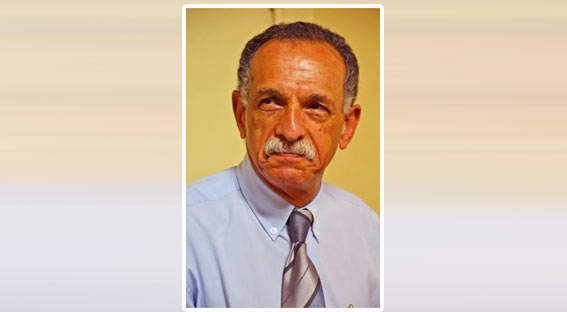On a cold Cairo winter day, with the sun shyly and hesitatingly showing up only every now and then, I enjoyed the warmth of a gathering that exuded joy and love. That gathering celebrated 20 years on Watani International, and ushered in its third decade. Watani International, the English language supplement of Watani, first came out on 18 February 2001.
We at Watani started planning and preparing for Watani International in 1999 and 2000. At the time we were preoccupied with the issue of expatriate Copts, their various generations, and the way they bonded with Egypt. There was the first generation of Copts who left Egypt in the 1960s and 70s to find better opportunity on other shores, or to escape hard situations in Egypt. Members of this generation were born and raised in Egypt; they grew up on her soil and among her people, drank the water of her Nile, were nursed on her traditions and customs, spoke her Egyptian Arabic tongue, bonded with her Church, and had a strong link to Watani. Nothing dissociated this generation from Egypt and her Church or from Watani; they continued to carry their Egyptianess in their hearts and souls, and to converse among themselves in Egyptian Arabic.
The second generation of expatriate Copts were in most cases born in Egypt, and probably spent a few years of their childhood or early youth there, till they sailed out with their parents to new destinations. Members of this generation are naturally less tied to Egypt than their parents; they are more at home with the languages and traditions of the new societies they integrated in. Accordingly, if we wish to interact with them, English would be the evident choice of language.
The third generation of Egyptian expatriates were born to one or two Egyptian parents in the countries that hosted their parents and grandparents as immigrants. They are fully integrated in their host communities, and in the major part know very little about Egypt, her history, culture, Church, or Watani. If we wished to connect and familiarise members of this generation with their roots, there was only one option: it had to be done in English. This was the challenge we faced and decided to take on in order to add these Egyptian-origin generations to Egypt’s credit instead of discounting them from it. Hence the plan for English language pages in Watani; and hence the mission of Watani International.
Watani International was created according to professional and journalistic standards that would best allow it to achieve its purpose and accomplish its mission. Chief among these standards was that it should be no mere translation of Watani from Arabic to English, but should be independent in its editing, writing, and page design, in order for it to effectively address its target readers outside Egypt in an attractive, compelling manner. This, of course, had to be done while strictly adhering to Watani’s Egyptian identity and mission.
The journey of Watani International thus began and went on to achieve brilliant success year after year. In 2011, Watani International marked its 10th anniversary amid the tumultuous events of the so-called Arab Spring; this year it marks its 20th as peace reigns in Egypt and a bright future looms.
As I look with appreciation and high regard, with gratitude too, at the team that brings out Watani International, I cannot but refer to the head of this team, its godmother professionally and morally, Samia Sidhom. Samia is the eldest daughter of Watani’s founder Antoun Sidhom, and is my dear sister. She was intensely occupied with Watani International ever since it started as an idea, she wholeheartedly and enthusiastically took part in its formation, establishment and launching, and she untiringly and passionately worked to fulfil its purpose. Until today, Samia has been leading the Watani International team, or I should say family, but she never did that through giving orders or even hinting at the carrot or the stick. Instead, she led through a charming mix of love, collaboration, self-sacrifice, and discipline; even when matters called for sternness, it was a sternness backed by professionalism and sustained with love. The outcome has been a team bonded with deep warmth of spirit and joy, and desirous of excellence on the professional level. This I saw in purest form as I joined the gathering I mentioned at the outset of this editorial, during which the Watani International family got set to embark on their third decade.
It remains for me to refer to two points without which talk about Watani International would never be complete. The first is that Watani International did not start as the single page in Watani that it is today. It started as a strong four-page pullout that included news, stories, opinion pieces, and historical and cultural material, part of which came from contributing editors outside Egypt. Over the years, however, it went down to three, two, then one page as Watani made successive reductions in its size owing to dire economic conditions in paper journalism. I thus agreed with Samia that Watani International would, during this year, create a weekly or monthly section to offer a brief review of the most significant material published in the English language pages throughout their two-decade life.
The second point I wish to make, and believe the time has come to make public, is a stance taken by Samia Sidhom in November 2016. It was a decision marked by generosity and greatness in spirit, made in absolute dedication to the mission of Watani which in turn holds it in gratitude and appreciation. Ever since it was launched in February 2001, Watani International had carried on its header the name of Samia Sidhom as Managing Editor. In November 2016, the Journalists’ Syndicate took a decision that headers of papers should feature only names of persons who were active members in the Syndicate. In compliance, Watani had to remove several names, among them Samia Sidhom. She did not protest, object, or even argue about the matter, but went on willingly and unhesitatingly with her work and responsibilities, continuing to edit her page and lead her Watani International team with the same dedication, love, and faithfulness. For those readers who had not seen her name on the header of Watani International before November 2016, she was the unknown leader that brought the page to light.
With pride and endearment I wish Watani International the very best, and hope it goes on to achieve endless success in fulfilling Watani’s mission.
Watani International
24 February 2021










